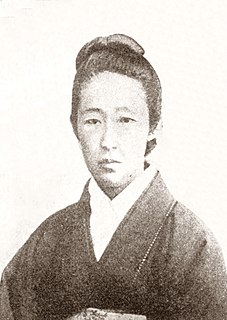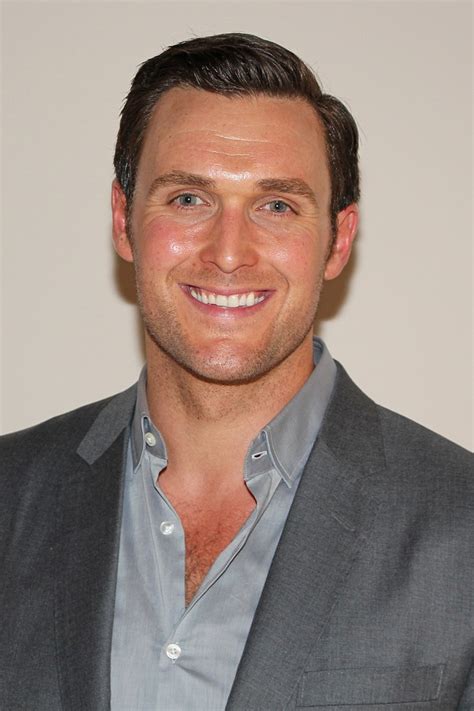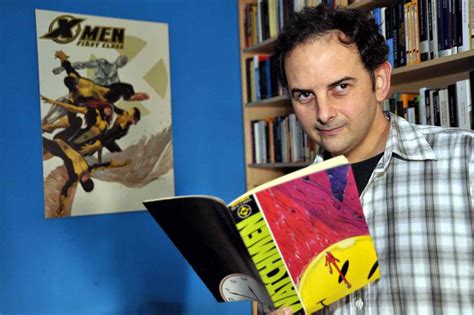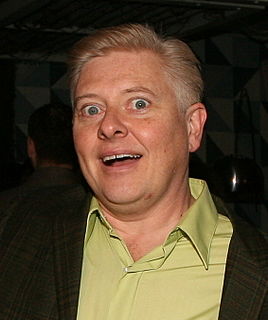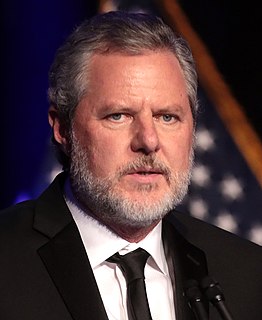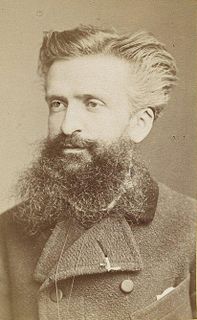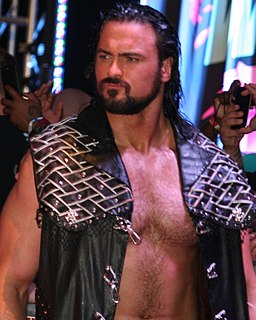Top 1200 Events In History Quotes & Sayings - Page 8
Explore popular Events In History quotes.
Last updated on November 2, 2024.
A particular place in the land is never, for an oral culture, just a passive or inert setting for the human events that occur there. It is an active participant in those occurrences. Indeed, by virtue of its underlying and enveloping presence, the place may even be felt to be the source, the primary power that expresses itself through the various events that unfold there.
Much more than an entertaining set of exaggerated facts, fiction is a metaphoric method of describing, dramatizing and condensing historical events, personal actions, psychological states and the symbolic knowledge encoded within the collective unconscious; things, events and conditions that are otherwise too diffuse and/or complex to be completely digested or appreciated by the prevailing culture.
Often the mass emotions are those which seem the noblest, best and most beautiful. And yet, inside a year, five years, a decade, five decades, people will be asking, "How could you have believed that?" because events will have taken place that will have banished the said mass emotions to the dustbin of history.
Lifes That Way was an extraordinarily difficult book to write, because it wasnt written as a book. It was written as a journal of events that were happening as I wrote it, without the space or time either to digest or analyze those events and without the hindsight and peace that writing in the aftermath would have provided.
To the scientist, nature is always and merely a 'phenomenon,' not in the sense of being defective in reality, but in the sense of being a spectacle presented to his intelligent observation; whereas the events of history are never mere phenomena, never mere spectacles for contemplation, but things which the historian looks, not at, but through, to discern the thought within them.
As a father, I believe that involving children in sports at a young age is generally, a wise proposition. I believe that healthy competition is... well... healthy; that sporting events foster a spirit of teamwork that far surpasses the events themselves; and that active participation keeps children moving and is good for their self-esteem.
I'm obsessed with insects, particularly insect flight. I think the evolution of insect flight is perhaps one of the most important events in the history of life. Without insects, there'd be no flowering plants. Without flowering plants, there would be no clever, fruit-eating primates giving TED Talks.
I love art, and I love history, but it is living art and living history that I love. It is in the interest of living art and living history that I oppose so-called restoration. What history can there be in a building bedaubed with ornament, which cannot at the best be anything but a hopeless and lifeless imitation of the hope and vigor of the earlier world?
History is always written wrong, and so always needs to be rewritten. ...What is interesting is brought forward as if it had been central and efficacious in the march of events, and harmonies are turned into causes. Kings and generals are endowed with motives appropriate to what the historian values in their actions; plans are imputed to them prophetic of their actual achievements, while the thoughts that really preoccupied them remain buried in absolute oblivion.
Music endures and ages far better than books. Books, made of words, are unavoidably attached to ideas, events, conflict, and history, but music has the power to transcend time. At least for a time. Palestrina sounds as fresh today as he did in 1555, but Dante, only three centuries older, already smells of the archaic, the medieval, the catacombs.
Within a single scene, it seems to be unwise to have access to the inner reflections of more than one character. The reader generally needs a single character as the means of perception, as the character to whom the events are happening, as the character with whom he is to empathize in order to have the events of the writing happen to him.
I am so profoundly grateful for the gospel of Jesus Christ, for a testimony of the Atonement of the Savior. I believe in it with all my heart, and I live for it, and I bear witness of it this day. Of all of the events of human history, none other approaches the Atonement of the Savior in its meaning and in its results. God be thanked for the gift of His precious Son, to whom we all owe thanks for His sacrifice in our behalf.
Like other universities do, Liberty hosts a number of events for outside organizations, businesses, and schools simply because we have the facilities that can accommodate them. It is a form of community service by Liberty and, because we are centrally located in the state, our campus is a good option for state events.
I have received a great deal of benefit from the simple yet difficult practice of learning to stop the internal voice in my head. I learned that the voice isn't me, and I don't need to keep rethinking events of the past nor overthink plans for the future. This skill has helped me both to focus and to pause before responding to unexpected events.
'Life's That Way' was an extraordinarily difficult book to write, because it wasn't written as a book. It was written as a journal of events that were happening as I wrote it, without the space or time either to digest or analyze those events and without the hindsight and peace that writing in the aftermath would have provided.
The real cause of the great upheavals which precede changes of civilisations, such as the fall of the Roman Empire and the rise of the Arabian Empire, is a profound modification in the ideas of the peoples .... The memorable events of history are the visible effects of the invisible changes of human thought .... The present epoch is one of these critical moments in which the thought of mankind is undergoing a process of transformation.
The more a man is imbued with the ordered regularity of all events the firmer becomes his conviction that there is no room left by the side of this ordered regularity for causes of a different nature. For him neither the rule of human nor the rule of divine will exist as an independent cause of natural events.
Families of privilege and money would have harps in their parlors, and their cultured daughters would learn to play. It's got such a strange history. But that wasn't the context that I learned it in, so the inherent friction between that history and the more humanist folk-y history wasn't in my conscience at all.
emotion clouds the rational, and many perspectives guide the full reality. To view current events as a historian is to account for all perspectives, even those of your enemy. It is to know the past and to use such relevant history as a template for expectations. It is, most of all, to force reason ahead of instinct, to refuse to demonize that which you hate, and to, most of all, accept your own fallibility.
There is much to be said in favor of modern journalism. By giving us the opinions of the uneducated, it keeps us in touch with the ignorance of the community. By carefully chronicling the current events of contemporary life, it shows us of what very little importance such events really are. By invariably discussing the unnecessary, it makes us understand what things are requisite for culture, and what are not.
The heart is commonly reached, not through the reason, but through the imagination, by means of direct impressions, by the testimony of facts and events, by history, by description. Persons influence us, voices melt us, looks subdue us, deeds inflame us. Many a man will live and die upon a dogma; no man will be a martyr for a conclusion.
Do not personally give any more conscious consideration, either of you, to events that you do not want to happen. Any such concentration, to whatever degree, ties you in with those probabilities, so concentrate upon what you want, and as far as public events are concerned, take it for granted that sometimes even men are wiser than they know.
History is not everything, but it is a starting point. History is a clock that people use to tell there political and cultural time of day. It is also a compass that people use to find themselves on the map of human geography. History tells a people where they have been and what they have been, where they are and what they are. Most important, history tells a people where they still must go, what they still must be. The relationship of history to the people is the same as the relationship of a mother to her child.
Often when people first hear this part of the Secret they recall events in history where masses of lives were lost, and they find it incomprehensible that so many people could have attracted themselves to the event. By the law of attraction, they had to be on the same frequency as the event. . . .those thoughts of fear, separation, and powerlessness, if persistent, can attract them to being in the wrong place at the wrong time
I think that you appreciate that there are extraordinary men and women and extraordinary moments when history leaps forward on the backs of these individuals, that what can be imagined can be achieved, that you must dare to dream, but that there's no substitute for perseverance and hard work and teamwork because no one gets there alone; and that, while we commemorate the... the greatness of these events and the individuals who achieve them, we cannot forget the sacrifice of those who make these achievements and leaps possible.
The lack of insight to reality, life and history as well as into God's ways, or sunan in His creation, some people will continue to seek or demand the impossible. They will imagine what does not or cannot happen, misunderstand occurrences and events, and interpret them on the basis of cherished illusions which in no way reflect God's sunan or the essence of Islamic law.
I definitely love history. I'm not formally trained or educated in history, but you could say I did go back to college in 2008 to do Untold History of the United States. That took five years. Co-author Peter Kuznick has been teaching history for something like 35 years, at American University and other places. His group of researchers brought me into contact with a lot of books.
I started taking my fiance, Justin, to some red carpet events I would go to, and a bowtie is often something that was required. We came across a lot of stylish bowties. We liked playing dress up for these events and we thought it would be fun to start a line, but it was never a reality until recently.
Each of us has a network of emotional and logical associations that is unique to us. Activate one mode of the association, and you activate a predictable pattern of behavior. A situation isn't just the external events that take place; it is how each individual processes those events and integrates them into her thoughts and feelings.
